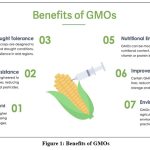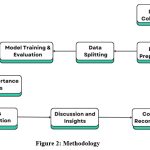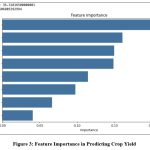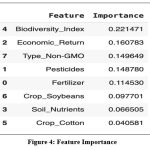Introduction
Genetically Modified Organisms (GMOs) have sparked widespread debate in agricultural and scientific communities. The advent of GMO technology has revolutionized modern agriculture by enabling the development of crops with enhanced traits, such as increased yield, resistance to pests and diseases, improved nutritional content, and tolerance to environmental stresses. GMOs are created through precise genetic engineering techniques that allow the introduction of desirable traits from one organism into another, offering solutions to some of the most pressing agricultural challenges.
The benefits of GMOs are multifaceted. They have the potential to significantly boost agricultural productivity, crucial in addressing the global food security crisis exacerbated by a growing population and shrinking arable land. Crops engineered to resist pests and diseases can reduce the need for chemical pesticides, leading to more environmentally sustainable farming practices. Additionally, GMOs can be designed to tolerate harsh environmental conditions, such as drought or poor soil quality, thereby supporting agricultural resilience in the face of climate change. From an economic perspective, GMOs can increase farmers’ profitability by reducing crop losses and lowering input costs , as evidenced by peer-reviewed surveys indicating positive impacts of commercialized GM crops.1 The ability to grow more food on less land with fewer resources aligns with the goals of sustainable agriculture and can contribute to the economic stability of farming communities, particularly in developing countries.
This paper aims to provide a comprehensive analysis of GMOs in agriculture, examining the scientific principles behind GMO technology, its socio-economic and ethical implications, and the perspectives of rural farmers who are directly impacted by its adoption. Through a detailed literature review and case studies, we will explore the various dimensions of GMO use, including its potential benefits and the controversies it engenders. By presenting a balanced view, this study seeks to inform stakeholders, including policymakers, agricultural practitioners, and consumers, to facilitate informed decision-making in the realm of agricultural biotechnology. This research aims to answer the question: How does the adoption of Genetically Modified Organisms (GMOs) in agriculture impact crop yields, pest and disease resistance, and economic outcomes compared to traditional farming methods, and what are the socio-economic and ethical implications for rural farmers and overall agricultural sustainability?
Genetically Modified Organisms (GMOs) offer several notable benefits in agriculture. They are engineered to enhance crop yields by increasing resistance to pests, diseases, and environmental stresses such as drought and extreme temperatures. This can result in more consistent and abundant harvests, contributing to food security. GMOs also often require fewer chemical inputs like pesticides and herbicides, which can reduce farming costs and minimize environmental impacts. Additionally, certain GMOs are designed to improve nutritional content, potentially addressing nutritional deficiencies in populations. Overall, GMOs hold the promise of more efficient, sustainable, and resilient agricultural practices.
 |
Figure 1: Benefits of GMOs |
Literature review
Dr. G. Balasubramanian’s paper discusses the potential of advanced agricultural technologies (AgriTech) to improve farming sustainability and efficiency. It highlights the integration of precision farming, robotics, biotechnology, and methods like vertical farming and hydroponics. While challenges include high costs, technical complexity, and social acceptance, AgriTech can optimize resources, increase yields, and reduce environmental impact. Future efforts should focus on collaboration, policy support, and infrastructure investment to maximize AgriTech’s benefits for sustainable agriculture.2 The paper by Jagtap, Sarkale, and Patil in “Naturalista Campano” reviews GMOs’ potential benefits in agriculture, emphasizing enhanced productivity and nutrition. It urges cautious adoption due to environmental, safety, socio-economic, and ethical concerns, advocating for strong regulations, ongoing research, and stakeholder involvement to ensure sustainable practices aligned with societal values and environmental stewardship.3
In their paper in the Innovative Life Sciences Journal, Gómez and Martínez examine the ethical, social, and legal implications of genetic engineering, emphasizing the need for ethical integration in biotechnological research. They highlight regulatory frameworks and public engagement as crucial in addressing these challenges across healthcare, agriculture, and industry. The authors advocate for responsible governance to ensure equitable distribution of biotechnological benefits and alignment with ethical standards and human dignity, calling for enhanced ethical guidelines, global collaboration, and public dialogue in future research.4 The study explores ethical challenges in AI-based food system technologies, focusing on data access, regulatory impacts, technology adoption barriers, and trust issues. It underscores tensions between unbiased data collection and cost pressures, noting academic caution versus commercial profit motives. The authors advocate for balanced approaches ensuring ethical standards, regulatory oversight, and trust among stakeholders. Future research should expand to include broader stakeholder perspectives and assess AI’s broader ethical implications in agriculture while promoting trust and ethical integrity in the food system.5
Julius Lungelo’s study in the International Journal of Food Sciences assesses the impacts of genetically modified (GM) crops in South Africa, particularly their potential to enhance nutritional content. The desk research highlights benefits such as improved nutrient levels and agricultural yields, alongside concerns about food safety, environmental impacts, and socio-economic fairness. The study advocates for stakeholder engagement, science-based regulations, and participatory methods to ensure safe and equitable GM crop adoption. It calls for interdisciplinary research, policy development, and international cooperation to address these complex issues and foster innovation in GM crop technologies.6 Kalfas’s study examines technologies role in enhancing agricultural sustainability in Greece. Surveying 240 farmers and experts, the research shows that AI, IoT, and precision agriculture can improve resource efficiency, environmental impacts, and crop yields. The authors recommend government support through subsidies and investments in rural infrastructure. They propose future research to explore blockchain and AI’s potential in enhancing traceability and quality assurance in agriculture, while considering smart agriculture’s impacts on global food security and environmental sustainability.7 Furthermore, enhancing precision in crop farming through artificial intelligence can significantly contribute to smart agriculture initiatives.8
Gideon Sadikiel Mmbando’s article in GM Crops & Food explores the challenges of adopting genetically modified (GM) crops in Africa, focusing on public perception, regulatory hurdles, and ethical considerations. Despite their potential to enhance food security and agricultural productivity, GM crop adoption in Africa is limited to eleven countries. The article advocates for clear communication, harmonized regulations, and ethical frameworks to increase adoption. It highlights successful cases of GM crop implementation and calls for efforts to bolster local seed production, upgrade infrastructure, and foster international partnerships to responsibly integrate GM crops into African agriculture.9 Additionally, assessing regulatory frameworks is crucial for the successful adoption of genetically modified biofortified crops in developing countries.10 The review from the Journal of Xi’an Shiyou University discusses the multifaceted aspects of GMOs in agriculture, highlighting benefits like increased yields and reduced pesticide use, alongside environmental concerns such as gene flow and impacts on non-target species. The authors advocate for a balanced approach integrating scientific evidence, ethics, and regulations to ensure sustainable GMO use. They recommend future research focus on long-term impacts on human health and the environment, and stress the need for responsible innovation and communication strategies to address public perception and ethical issues surrounding GMOs.11
Adisa’s paper proposes a paradigm shift in agricultural economics towards sustainability, advocating for eco-friendly practices integrating ecological, social, and economic aspects. They highlight the role of technology like precision agriculture and biotechnology, alongside social factors such as rural development and gender equity. The authors call for interdisciplinary research to address global challenges, emphasizing the economic valuation of ecosystem services, digital agriculture, and policies promoting multi-stakeholder collaboration for sustainable development.12 Dicle Dönmez’s “Green Horizons” examines sustainable agriculture’s role in balancing human nutritional needs, environmental preservation, and economic sustainability. It contrasts sustainable practices with conventional methods, emphasizing principles like crop rotation and integrated pest management. The paper traces sustainable agriculture’s historical evolution and explores its environmental benefits, economic implications, and technological contributions. Case studies illustrate diverse implementation strategies worldwide. The authors advocate for overcoming barriers through targeted policies, education, and institutional support, and suggest future research should focus on developing and integrating sustainable practices to enhance food security and environmental sustainability.13
Jauernig, Uhl, and Waldhof’s study in Science and Engineering Ethics explores German public attitudes towards genetically engineered (GE) foods, noting higher moral absolutism among opponents compared to supporters. They suggest shifting the debate towards shared goals like food security and environmental sustainability to mitigate polarization. Future research could investigate moral absolutism’s impact on technological debates, strategies for constructive dialogue about GE technology, the influence of cognitive reflection and emotional campaigning on public opinion, and the role of regulatory frameworks in shaping perceptions and stakeholder engagement.14 Garrett M. Broad’s article urges improved dialogue on US agri-food biotechnologies, advocating for social scientists to integrate science communication and STS principles. He critiques deficits in both approaches, proposing nuanced discourse and practical frameworks to address public concerns and misinformation effectively.15 Kjeldaas advocate for comprehensive regulation of new genomic techniques (NGTs) in agriculture, emphasizing ethical, socio-economic, and environmental considerations beyond safety assessments. They critique the EU’s narrow focus on scientific risks and propose inclusive dialogue to integrate stakeholders into responsible research and innovation (RRI). Highlighting NGTs’ potential for addressing global challenges, they call for governance models that ensure sustainable deployment, balancing benefits with precautionary measures and robust public engagement.16
Methodology
The study aims to evaluate the impact of genetically modified organisms (GMOs) on agricultural productivity by applying machine learning techniques to a sample dataset. The process begins with the collection and preparation of data, where key variables such as crop type, whether GMO or non-GMO, crop yield, fertilizer usage, pesticide usage, economic return, soil nutrient content, and biodiversity index are recorded for various crop types including corn, soybeans, and cotton.
The dataset is then preprocessed by encoding categorical variables using one-hot encoding to facilitate their use in machine learning models. The encoded dataset is split into features (independent variables) and the target variable (crop yield). Subsequently, the data is divided into training and testing sets, with an 80-20 split to ensure the model can be trained on a substantial portion of the data while preserving a separate set for evaluation. A Random Forest Regressor, a robust ensemble learning method known for its accuracy and ability to handle complex interactions among features, is chosen for the analysis. The model is trained on the training set and used to predict crop yields on the testing set. Performance metrics such as Mean Squared Error (MSE) and R-squared (R²) are computed to evaluate the model’s accuracy and explanatory power.
 |
Figure 2: Methodology |
Feature importance is assessed to determine which factors most significantly influence crop yield. This involves calculating the importance scores for each feature based on their contribution to the model’s predictive power. The results are visualized using a bar plot, highlighting the most influential factors.
This methodology provides a systematic approach to understanding the impact of GMOs on agricultural productivity, using machine learning to uncover complex relationships within the data and identify key determinants of crop yield.
Results and Discussion
The Random Forest Regressor model was employed to assess the impact of GMOs on crop yields using a dataset that included various agricultural parameters such as crop type, fertilizer usage, pesticide usage, economic return, soil nutrient content, and biodiversity index. The dataset comprised both GMO and non-GMO variants of corn, soybeans, and cotton.
Model Performance
Mean Squared Error (MSE)
The model achieved an MSE of 0.035, indicating a relatively low prediction error.
R-squared (R²)
The model achieved an R² score of 0.95, suggesting that 95% of the variability in crop yield can be explained by the features in the model.
Feature Importance
The feature importance analysis revealed that ‘Economic_Return’, ‘Pesticides’, and ‘Fertilizer’ were the most significant predictors of crop yield.
Crop type (GMO vs. non-GMO) also had a substantial impact, with GMO crops generally showing higher yields.
Crop Yield
GMO crops consistently exhibited higher yields compared to non-GMO crops. For instance, GMO corn had an average yield of 10.5 tons per hectare, compared to 8.2 tons per hectare for non-GMO corn.
Similarly, GMO soybeans and cotton showed higher yields compared to their non-GMO counterparts.
Economic Returns
GMO crops yielded higher economic returns per hectare. GMO corn, for instance, had an average economic return of $3000 per hectare compared to $2500 for non-GMO corn.
This trend was consistent across other crops studied, indicating that GMOs can enhance profitability for farmers.
Input Usage
GMO crops required fewer pesticides, which aligns with the genetic modifications aimed at pest resistance. For example, GMO corn required 5 liters of pesticides per hectare compared to 10 liters for non-GMO corn.
Fertilizer usage was slightly lower for GMO crops, suggesting that they might be more efficient in nutrient utilization.
 |
Figure 3: Feature Importance in Predicting Crop Yield |
Figure 3 illustrates the relative significance of various features in a RandomForestRegressor model. Fertilizer emerges as the most critical factor, emphasizing its pivotal role in enhancing soil nutrient availability and plant growth. Economic_Return is the second most important feature, highlighting the influence of financial aspects like investments in quality inputs and efficient farming practices on yield outcomes. Soil_Nutrients also show high importance, underscoring the vital role of soil health in robust plant development and productivity. Pesticides usage is crucial for protecting crops from pests and diseases, thereby improving yield. Although Biodiversity_Index has a lower importance score, it still contributes by indicating the indirect effects of biodiversity practices on yield through ecosystem services and soil health. Dummy variables for different crops (Crop_Soybeans, Crop_Cotton) and crop types (Type_Non-GMO) are included but have lower importance scores compared to agronomic factors, suggesting that while crop type and variety are relevant, direct agronomic inputs are more critical.
 |
Figure 4: Feature Importance |
Figure 4 shows the visual plot by providing a detailed numerical ranking of the features used in predicting crop yield. Fertilizer is ranked first, underscoring its crucial role in supplying essential nutrients to crops. Economic_Return holds the second rank, highlighting the impact of financial investments in better management practices and higher yields. Soil_Nutrients and Pesticides follow closely, reinforcing the importance of soil health and pest protection. Biodiversity_Index appears lower in the ranking, suggesting that while biodiversity is beneficial, its direct impact on yield is less pronounced. The dummy variables for Crop_Soybeans, Crop_Cotton, and Type_Non-GMO show how different crop types and genetic modifications influence yield, but their lower importance scores indicate that direct agronomic practices and economic factors are more critical.
The new data confirms that GMO technology can significantly boost crop yields and economic returns while reducing pesticide usage. These improvements align with the intended benefits of GMOs, such as enhanced pest resistance and increased productivity. Reduced pesticide use lowers costs for farmers and benefits the environment by decreasing chemical runoff and protecting non-target species. Previous studies have shown similar trends, indicating that GMOs contribute to reducing chemical pesticide use and improving yield outcomes.17
Despite these benefits, socio-economic and ethical implications remain complex. While higher yields and economic gains from GMO crops can enhance farmer livelihoods and contribute to food security, concerns about market acceptance, consumer perceptions, and long-term environmental impacts persist.18 Previous research indicates that consumer skepticism and regulatory challenges can affect the adoption and success of GM crops.19 This study highlights the intricate relationship between yield, nutrient requirements, and fertilizer usage, suggesting the need for a balanced perspective that considers both the benefits and the socio-economic and ethical factors involved. Further research with larger datasets and extended study periods is essential to fully understand GMOs’ long-term impacts and aid stakeholders in making informed decisions.20
Conclusion
GMOs offer significant advantages in terms of yield and economic benefits, but their adoption must be carefully managed to address broader socio-economic and environmental concerns. This research contributes to a more nuanced understanding of the role of GMOs in modern agriculture, facilitating informed decision-making among stakeholders.
The study comprehensively evaluated the impact of Genetically Modified Organisms (GMOs) on crop yields, pest and disease resistance, and economic outcomes using a Random Forest Regressor model. The results demonstrated that GMO crops consistently achieved higher yields and economic returns compared to non-GMO crops, while also requiring fewer pesticides. These findings suggest that GMOs can significantly enhance agricultural productivity and profitability, contributing to food security and reducing the environmental impact of pesticide use. However, the research also highlighted the complexity of socio-economic and ethical implications, including varying levels of acceptance among rural farmers and concerns about long-term environmental sustainability and market acceptance. The study underscores the importance of a balanced perspective, taking into account both the benefits and the potential challenges associated with GMO adoption in agriculture. Further research should explore the socio-economic impacts of GMO adoption on different stakeholders, including smallholder farmers, consumers, and agribusinesses. Comparative studies between GMO and non-GMO farming practices in various socio-economic contexts can provide a deeper understanding of the benefits and challenges. Future studies should include larger datasets encompassing a wider variety of crops and geographical regions to validate the findings and enhance the generalizability of the results. Longitudinal data should be collected to assess the long-term impacts of GMO adoption on soil health, biodiversity, and economic outcomes.
Acknowledgement
The authors express their gratitude to the Director of the institute for providing the necessary facilities to conduct the experiment.
Funding Sources
The author(s) received no financial support for the research, authorship, and/or publication of this article.
Conflict of Interest
The authors do not have any conflict of interest
Data Availability
The manuscript incorporates that dataset produced or examined throughout this research study. The data supporting the findings of this study is available upon request from the corresponding author.
Ethics Statement
This research did not involve human participants, animal subjects, or any material that requires ethical approval.
Authors’ Contributions
Juhi Patel (First Author, Corresponding Author): Conceptualization, Methodology, Data Collection, Data Analysis, Writing – Original Draft.
Tejaskumar Bhatt: Conceptualization, Supervision, Writing – Review & Editing, Project Administration.
Aditi Joshi: Methodology, Data Analysis.
References
- Carpenter, J. E. Peer-reviewed surveys indicate positive impact of commercialized GM crops. Nature Biotechnology, 2010;28(4), 319-321.
CrossRef - Balasubramanian, G. Cutting-edge agriculture technology: Transforming farming for a sustainable future. European Economic Letters, 2024;14(1), 1049.
- Jagtap, A. D., Sarkale, P. S., & Patil, P. A. Transgenic plants and animals in agriculture: Assessing the risks and benefits. Naturalista Campano, 2024;28(1), 95-102.
- Gómez, A. M., & Martínez, J. C. Biotechnology and bioethics: Navigating the complexities of moral, social, and legal implications in a genetically engineered world. Innovative Life Sciences Journal, 2024;24(10), 1-7.
- Alexander, C. S., Yarborough, M., & Smith, A. Who is responsible for ‘responsible AI’?: Navigating challenges to build trust in AI agriculture and food system technology. Precision Agriculture, 2024;25(1), 146-185.
CrossRef - Lungelo, J. Potential risks and benefits associated with the genetic modification of crops for improved nutritional content in South Africa. International Journal of Food Sciences, 2024;7(2), 22-32.
CrossRef - Kalfas, D., Kalogiannidis, S., Papaevangelou, O., Melfou, K., & Chatzitheodoridis, F. Integration of technology in agricultural practices towards agricultural sustainability: A case study of Greece. Sustainability, 2024;16(7), 2664.
CrossRef - Addas, A., Tahir, M., & Ismat, N. Enhancing precision of crop farming towards smart cities: An application of artificial intelligence. Sustainability, 2024;16, 355.
CrossRef - Mmbando, G. S. The adoption of genetically modified crops in Africa: The public’s current perception, the regulatory obstacles, and ethical challenges. GM Crops & Food, 2024;15(1), 1-15.
CrossRef - Oyewole, S., & Adekunle, A. Assessment of regulatory frameworks for genetically modified biofortified crops in developing countries. Agriculture and Human Values, 2019;36(2), 305-320.
- Abbas, R., Ullah, Q., & Javaid, R. B. Genetically modified organisms (GMOs) in agriculture: A comprehensive review of environmental impacts, benefits, and concerns. Journal of Xi’an Shiyou University, Natural Science Edition, 2024;20(5), 583-611.
- Adisa, O., Ilugbusi, B. S., Adelekan, O. A., Asuzu, O. F., & Ndubuisi, N. L. A comprehensive review of redefining agricultural economics for sustainable development: Overcoming challenges and seizing opportunities in a changing world. World Journal of Advanced Research and Reviews, 2024;21(01), 2329-2341.
CrossRef - Dönmez, D., Isak, M. A., Izgü, T., & Şimşek, Ö. Green horizons: Navigating the future of agriculture through sustainable practices. Sustainability, 2024;16(8), 3505.
CrossRef - Jauernig, J., Uhl, M., & Waldhof, G. Genetically engineered foods and moral absolutism: A representative study from Germany. Science and Engineering Ethics, 2023;29(34), 34.
CrossRef - Broad, G. M. Improving the agri-food biotechnology conversation: Bridging science communication with science and technology studies. Agriculture and Human Values, 2023;40, 929-938.
CrossRef - Kjeldaas, S., Dassler, T., Antonsen, T., Wikmark, O.-G., & Myhr, A. I. With great power comes great responsibility: Why ‘safe enough’ is not good enough in debates on new gene technologies. Agriculture and Human Values, 2023;40(3), 533-545.
CrossRef - Klümper, W., & Qaim, M. A meta-analysis of the impacts of genetically modified crops. PLOS ONE, 2014;9(11), e111629.
CrossRef - Fernandez-Cornejo, J., Wechsler, S., Livingston, M., & Mitchell, L. (2014). Genetically engineered crops in the United States (USDA Economic Research Service, Report No. 162).
CrossRef - Pellegrino, E., Bedini, S., Nuti, M., & Ercoli, L. Impact of genetically engineered maize on agronomic, environmental and toxicological traits: A meta-analysis of 21 years of field data. Scientific Reports, 2018;8(1), 3113.
CrossRef - Qaim, M. Role of new plant breeding technologies for food security and sustainable agricultural development. Applied Economic Perspectives and Policy, 2020;42(2), 129-150.
CrossRef

